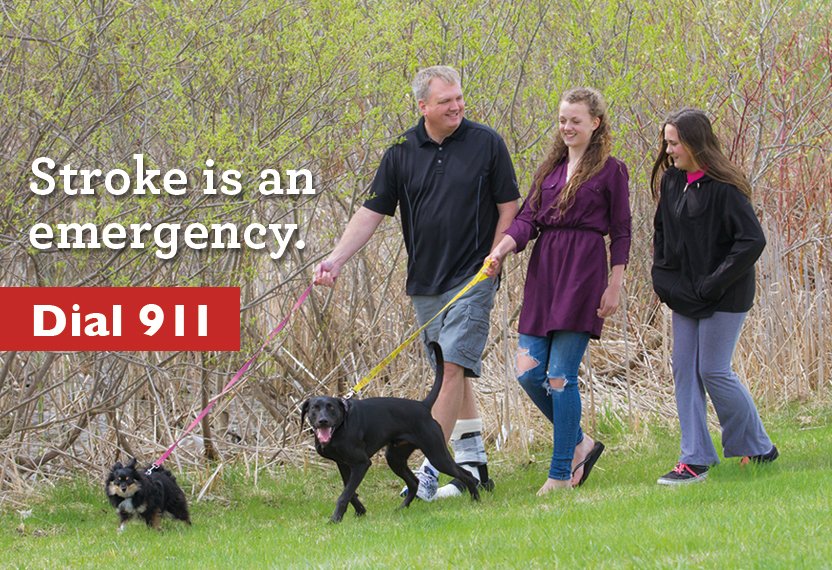Recognize stroke symptoms and take early action
Muhammad Fareed K. Suri, MBBS
Stroke Medical Director
CentraCare Clinic – River Campus Neurology
Common Stroke Symptoms
- Sudden face, arm or leg weakness — especially on one side of the body.
- Sudden confusion, trouble speaking or understanding.
- Sudden headache with no known cause.
- Sudden vision changes
- Sudden walking or balance problems
 May is National Stroke Awareness Month. Strokes are still responsible for one in 20 deaths in this country. And it’s estimated that as many as 80 percent of strokes are preventable.
May is National Stroke Awareness Month. Strokes are still responsible for one in 20 deaths in this country. And it’s estimated that as many as 80 percent of strokes are preventable.
Most people who have a stroke have high blood pressure, but nearly one in six American adults with high blood pressure are unaware of the problem. Having your blood pressure checked can help you reduce your risk of having a stroke. And if you do have high blood pressure — normal blood pressure is below 120/80 — talk with your doctor about what you can do to improve it.
That’s one thing you can do for yourself this month. Here’s another thing you can do for someone else: become familiar with stroke symptoms and know what to do if you see them.
A list of common stroke symptoms is on the right. If you observe someone with of these signs, call 911 and get him or her emergency medical help. Review more stroke signs and symptoms.
Every moment matters when someone has a stroke. There are treatments available to help someone having a stroke, but to work best they need to be given approximately three hours of when symptoms first appear. The longer someone goes without treatment and the longer the brain is deprived of blood flow and oxygen — the more the brain can be damaged.
It’s important for people of all ages to know these signs. Last year, Jeff Birch started experiencing stroke symptoms at his Melrose home on a Saturday afternoon. Only his 12 and 9-year-old daughters, Kyja and Avery, were home with him at the time. But their ability to tell that something was wrong and get help made a major difference in getting Jeff the care he needed started via TeleStroke from St. Cloud Hospital’s Stroke Center. Their quick actions not only helped him not just avoid disability and death, but likely improved his chances at recovery. Read Jeff and his family's full story.
Become familiar with the signs of a stroke and how to respond. You never know when you could be difference when helping a friend, loved one or a neighbor.